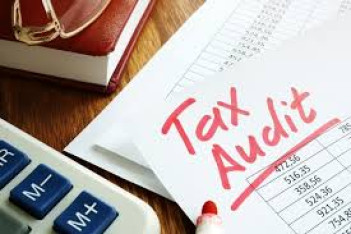Understanding Debt and Breaking Free from Financial Traps
Debt is a significant issue that keeps many people trapped in a cycle of financial stress and limitation. However, it is not always the lack of sufficient income that causes this entrapment, but rather the habits and behaviors individuals adopt in their financial lives. To begin the journey towards financial freedom and independence, it is essential to start by understanding these habits and implementing effective strategies to overcome debt.
One of the most fundamental steps to managing debt is to track every expense meticulously. For a period of 30 days, every single expenditure should be recorded, no matter how small or seemingly insignificant. This practice is vital because you cannot fix what you do not see. Without a clear picture of where your money goes, it is impossible to develop a realistic plan for reducing debt.
Tracking expenses helps identify unnecessary spending and allows you to allocate more funds towards paying off debt. This discipline creates awareness and accountability, which are cornerstones of successful financial management. Once you have a comprehensive understanding of your spending, it becomes easier to categorize expenses and recognize patterns that contribute to debt accumulation.
Prioritizing Debt Payments: The High-Interest Strategy
After gaining clarity on your spending habits, the next crucial step is to focus on paying down high-interest balances first. Debts with high interest rates, such as credit card balances, payday loans, and some personal loans, accumulate more cost over time and can quickly escalate your total debt if not addressed promptly.
While focusing on paying off the debts with the highest interest rates, it is important to continue making at least the minimum payments on all other debts. This approach prevents penalties, additional fees, and further damage to your credit score. Ensuring that no account is neglected keeps your overall financial situation stable throughout your debt repayment journey.
The strategy involves channeling extra funds towards the debt with the highest interest rate, accelerating its repayment. Every time you successfully clear one account, redirect the amount you used to pay that debt to the next highest interest debt. This snowball effect helps to increase momentum and motivation as you see debts disappearing one by one.
Developing Healthy Financial Habits for Long-Term Freedom
Financial independence is often misunderstood as a goal to become wealthy or rich. However, true financial independence means having the freedom to live your life without being controlled by financial obligations or debt. It is about gaining control over your resources and decisions instead of allowing external pressures to dictate your lifestyle.
Achieving this freedom requires building and maintaining healthy financial habits. These include budgeting effectively, saving regularly, avoiding impulsive purchases, and continually educating yourself about money management. Developing discipline and patience is essential, as financial freedom is a marathon, not a sprint.
Moreover, seeking professional advice when needed is a critical aspect of a sound financial plan. If you require proper legal or financial help, it is advisable to reach out through trusted communication channels or send private messages to qualified consultants. Professional guidance can help you navigate complex debt situations, negotiate with creditors, and design customized strategies tailored to your unique circumstances.
Implementing a Practical Debt Repayment Plan: Step-by-Step Guide
- Start by tracking all your expenses daily for at least 30 days to gain a clear overview of your spending habits.
- List all your debts with their corresponding interest rates, minimum payments, and outstanding balances.
- Prioritize paying off the debt with the highest interest rate first, while making minimum payments on all other debts.
- Once a debt is paid off, redirect the money you used for that payment towards the next highest interest debt to accelerate repayment.
- Regularly review and adjust your budget to free up additional funds for debt repayment whenever possible.
- Avoid acquiring new debts during this period unless absolutely necessary.
- Seek support from financial advisors or legal experts if you face challenges that require professional intervention.
Common Challenges and How to Overcome Them
Many people who attempt to break free from debt encounter psychological and practical challenges. Emotional spending triggered by stress, lack of motivation, or unexpected expenses often derail repayment efforts. To overcome these, it is helpful to set clear goals, celebrate small victories, and maintain a strong support system.
Another challenge is facing creditors or managing legal aspects of debt, which can be overwhelming. Professional guidance is invaluable here to ensure fair treatment and to explore options such as debt consolidation, negotiation, or even bankruptcy if warranted. Remember, seeking help does not signify failure; it is a strategic step towards reclaiming your financial life.
The Role of Financial Education in Debt Management
Financial education empowers individuals with knowledge and tools to make informed decisions, avoid future debt traps, and build lasting wealth. Learning about budgeting, investing, credit management, and legal rights related to debt can dramatically improve financial outcomes.
Educational resources are available through various platforms, including books, online courses, workshops, and consultation services. Taking time to enhance financial literacy in 2025 and beyond is a proactive way to strengthen your financial foundation.
Building a Debt-Free Future
Breaking free from debt is not an overnight process but a journey that involves intentional actions, perseverance, and the right mindset. By adopting the strategies outlined above, anyone can progress towards a debt-free life and enjoy the associated peace of mind and opportunities for growth.
Remember, financial independence is less about how much you earn and more about how well you manage what you have. Controlling debt means you control your life, your time, and your choices.
- Track all expenses for a complete financial overview.
- Prioritize high-interest debts to minimize interest payments.
- Maintain minimum payments to avoid penalties.
- Redirect payments from paid-off debts to accelerate progress.
- Develop and maintain healthy financial habits.
- Seek professional legal and financial assistance when necessary.
About Legal Consultant Marketplace CONSULTANT
Legal Marketplace CONSULTANT is a professional legal service provider dedicated to assisting individuals and businesses in navigating complex financial and legal challenges. Our experienced team offers comprehensive support in debt management, legal consultancy, and financial planning to empower clients to achieve financial independence and security.
We emphasize personalized service and strategic planning to tailor solutions that meet each client’s unique needs. Whether you require guidance on debt repayment strategies or legal advice on financial matters, Legal Marketplace CONSULTANT is here to help you regain control over your financial future.
Legal Marketplace CONSULTANT provides expert legal and financial consulting services, assisting clients in debt resolution and financial independence strategies. Our dedicated team of lawyers and financial advisors ensures tailored and effective solutions.
Debt does not have to be a lifelong burden. By understanding your spending habits, prioritizing repayments effectively, and maintaining disciplined financial practices, you can break free from debt’s control. Financial independence is within reach when you commit to managing your finances wisely and seeking expert help when needed. Legal Marketplace CONSULTANT is committed to supporting you every step of the way towards achieving true financial freedom.































